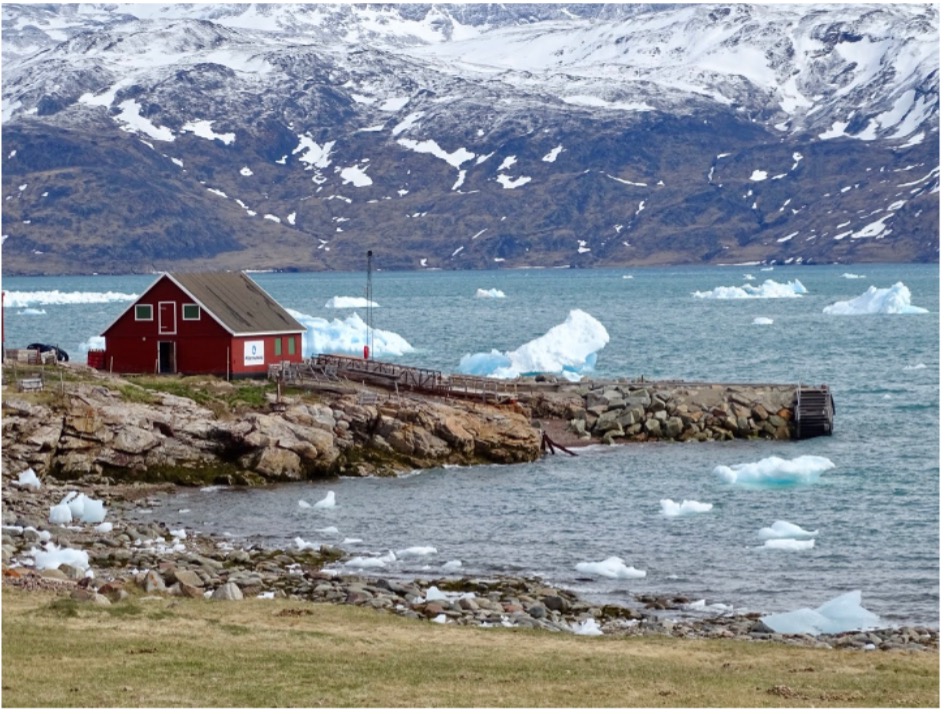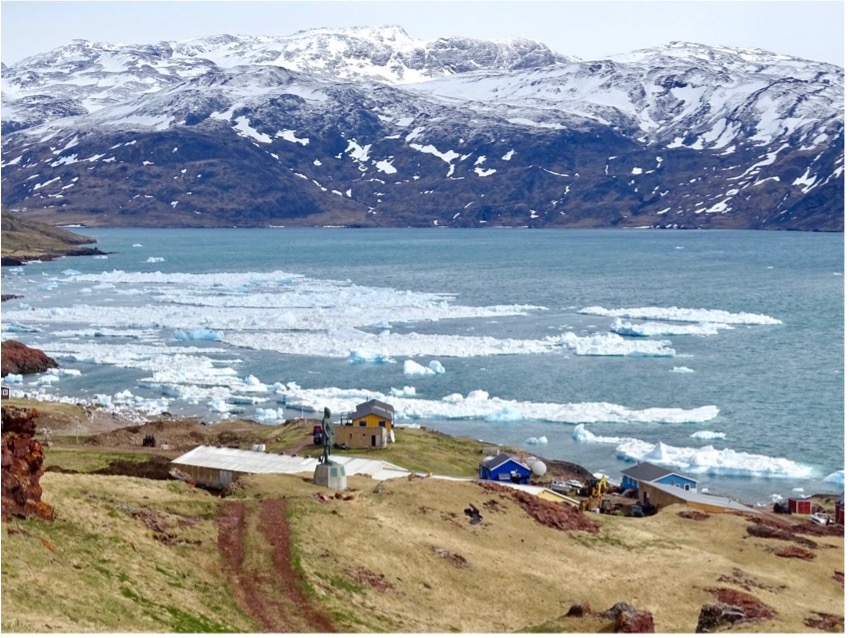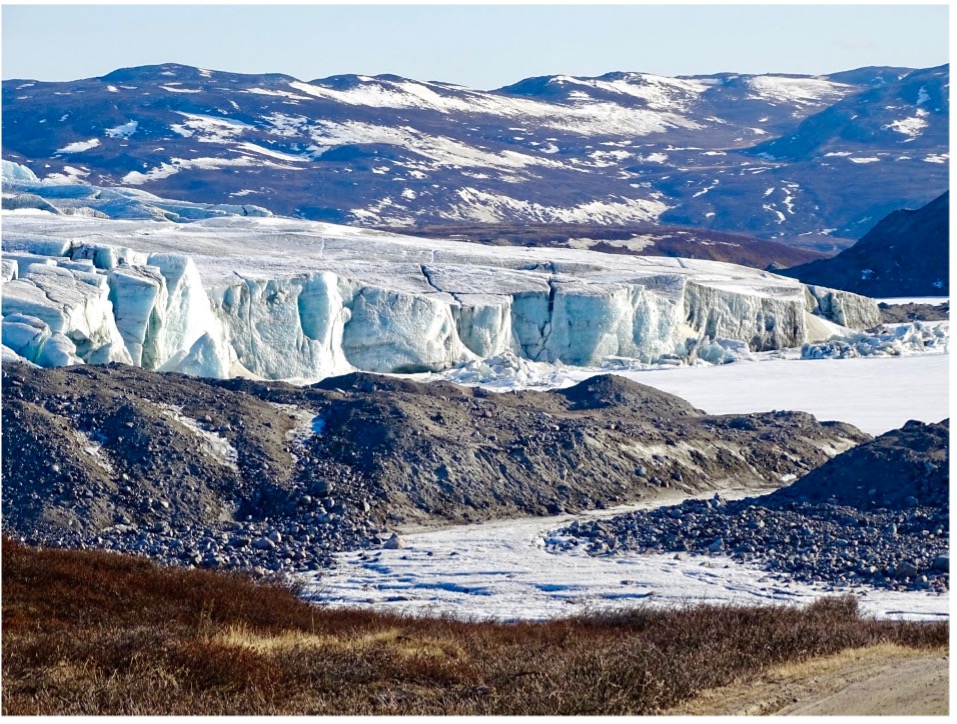Tourism and sustainable development
Writer : Rachel Antoni
Have you ever felt uneasy about global warming or forest fires? Do you have a negative image of the future linked to natural disasters? Do you think that nothing matters anymore because you feel powerless to face this announced crisis? If you feel a strong anxiety in front of the great climatic upheavals, you probably suffer from eco-anxiety. But this is not necessarily a bad thing, it means that you can and want to act.
Eco-anxiety, a recent concept
In 1996, Véronique Lapaige, a medical researcher in mental, environmental and public health, conceptualized “eco-anxiety”. This concept designates an “identity malaise” related to the negative developments that surround us. This feeling is also called solastagy and is defined as “a form of psychological or existential suffering and distress caused by current or expected past environmental changes”. Eco-anxiety is a young and little recognized concept. Indeed, it is not included in the Diagnostic and Statistical Manual of Mental Disorders (DSM-5) which was only updated in 2013. Therefore, there are very few statistics regarding this condition.
If this concept still seems a little unclear to you, remember the young Swedish activist Greta Thunberg. For many, she brought this fear to light and embodies the generation that feels it. Indeed, today, when we talk about eco-anxiety, we associate this concept with an uneasiness felt by a category of society considered “young”. When we look at the different articles and videos on the internet, most people who describe themselves as eco-anxious are teenagers or young adults concerned about the world of tomorrow. Although eco-anxiety has a negative connotation and manifests itself through fear and anxiety, it is not necessarily completely negative. It can be a driving force and can have positive consequences. Indeed, this feeling pushes us to look for solutions to contribute to sustainable development and actively fight against environmental changes. Becoming aware of the seriousness of these phenomena is to take responsibility and start acting.

Climate change at the origin of this uneasiness
Awareness of the negative effects of climate change dates back to the 20th century. In 1972, René Dubos, an ecologist and biologist, wrote a report – later used by the United Nations during its very first conference on the environment, also known as the “Earth Summit”, in 1992 – highlighting the idea that “we only have one Earth”. The 1980s marked a turning point in this awareness: in 1987, the term “sustainable development” was theorized in the Brundtland Report [1] and in 1988, the Intergovernmental Panel on Climate Change (IPCC) was created. This desire for improvement became a reality with the creation of the first Conference of the Parties in 1997 in Kyoto, where 38 countries committed themselves to reducing their greenhouse gas emissions.
From the year 2000 onwards, awareness accelerated with the appearance of new worrying data. Greenhouse gases are at the center of environmental issues, as they influence global warming, rising sea levels, the disappearance of certain species and the increase in natural disasters. For several years now, the media has been reporting on these various disasters and the general public’s concern is growing. Forest fires, floods, cyclones, the shrinking of coastlines or water pollution: all these phenomena are highlighted and create real anxiety for many of us. Indeed, this is reflected in young people through eating disorders, sleep disorders or a feeling of helplessness. In September 2021, the journal The Lancett Planetary Health, published a study that reveals that the majority of 10,000 young people aged 16 to 25 years surveyed, feel concerned by this phenomenon. Indeed, nearly one in two young people feel guilty, angry, or anxious about climate change. For 60% of the young people questioned, a strong concern is felt. It is then necessary to find solutions to overcome this uneasiness and act.
Eco-anxiety is, in most cases, linked to a feeling of powerlessness and lack of control. Developing resilience and taking action allows us to feel useful and pushes us to think of solutions adapted to our scale. It is no longer a question of fighting climate change. Today, we are facing a climate reality. Travelling is not in total contradiction with eco-anxiety. It allows us not only to understand what is happening elsewhere, but also to learn from others and to understand that we are part of a whole. To protect, one must love, and to love, one must know. Travel is therefore also a solution to act; sustainable tourism appears as a means of action!
Sustainable tourism as a means of action: discover, share and inform
At Village Monde, as we travel, we recognize that we are part of the problem. We also recognize that the climate crisis we face goes hand in hand with social injustice, that we cannot dissociate the human from the territory, and that the most vulnerable populations are often found in the most impacted natural areas. Therefore, we also evaluate all the benefits that a more conscious, sustainable and responsible travel could offer. However, to do so, we must learn to travel better: sustainable tourism becomes a solution. Village Monde defines sustainable tourism as tourism that respects the environment and the people. By traveling sustainably, you choose to favor local accommodations that are close to the people and have positive environmental, social and economic impacts for the local populations. You also choose to travel more slowly (slow tourism) and to take the time to meet your host(s), to spend time with them by practicing cultural tourism. Thus, sustainable tourism is a tourism at the service of local economic and social development, while respecting the environment.

Nevertheless, to get as close as possible to the communities, it can often be necessary to take a plane, a boat or even just a car. To travel more sustainably, you can calculate and offset your carbon footprint and you can do so in different ways: by donating to an association that supports sustainable and local development projects – like Village Monde, which has the “One percent for the Planet” label – or by buying certified carbon credits directly.
The Global Village Program – Greenland 2023: Climate Reality and Resilience
The current climate situation, amplified by the COVID-19 crisis, is becoming increasingly important (tropical hurricanes in the north, heat waves, fires and droughts, lack of snow in the mountains, disappearance of glaciers, etc.) and is recognized as one of the next major crises. Being aware of this crisis does not have to be a source of stress. This stress and anxiety can be transformed into something stronger. Being aware of this climate reality makes us want to learn more about what to do about it.

C’est pour ces raisons que Village Monde a développé le projet Groenland 2023 : réalité climatique et résilience. En effet, ce projet donnera lieu à une expédition de 30 jours en kite-ski. À travers le froid glacial, la neige et le vent, 3 explorateurs engagés parcourront 1700km au cœur de la calotte glaciaire afin de renforcer leur résilience. En partageant leur expérience au travers de nos réseaux sociaux, de différentes conférences et d’un documentaire sous forme de témoignages, ce projet aura pour objectif de sensibiliser et d’éduquer, particulièrement les jeunes, à la prise de conscience de cette réalité climatique et d’accentuer la résilience de chacun. Ce projet vise à montrer qu’il ne s’agit pas de sauver notre planète, celle-ci survit depuis des siècles et survivra encore. Cependant, ce sont les conditions environnementales qu’elle nous offre (l’air, l’eau, le climat, la faune et la flore) qu’il faut préserver car ce sont les conditions qui permettent à l’humain d’y vivre.
Ainsi, ce projet d’éducation à la citoyenneté mondiale et environnementale vise à inspirer, sensibiliser, former et favoriser l’engagement des jeunes de 15 à 30 ans pour faire face aux changements climatiques. Il s’agit d’aider les personnes touchées par l’éco-anxiété et soucieuses de cette réalité climatique à s’engager dans une démarche positive avec l’espoir d’un avenir meilleur.
Il sera possible de suivre nos explorateurs à partir de mi-avril live sur la page de l’expédition.
Si vous souhaitez en savoir plus sur le tourisme durable, n’hésitez pas à lire nos différents articles ainsi que notre charte du voyageur responsable.
Maintenant, c’est à vous de jouer !
Avec l’appui de la Fondation Telus pour un futur meilleur et Desjardins.
Subscribe to the travel newsletter from our collaborative booking platform Vaolo to find out what’s new, follow our explorers and receive tips for more conscious travel.
The use of the masculine gender has been adopted for ease of reading and has no discriminatory intent.
© 2024 All rights reserved. Village Monde.
By continuing to use the site, you agree to our privacy and cookie policy
I accept